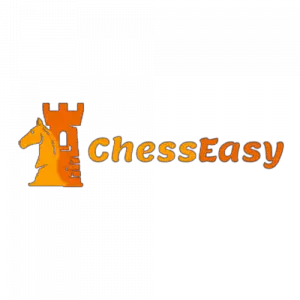
At first glance, chess may seem deceptively simple with its 64 squares and 32 pieces, but as you delve deeper, you’ll uncover a world of complexity and possibilities
But, does chess have endless possibilities? Can a chess game really go on forever?
Chess has virtually endless possibilities, as there are over 10120 potential move combinations players can make. However, realistically speaking, it is highly unlikely for a game to continue indefinitely due to the 50-move rule and threefold repetition rule.
keep reading to learn more about whether chess has endless possibilities and the rules that prevent chess games from going on forever.
Does Chess Have Endless Possibilities?
Chess is often described as a game with “endless possibilities” due to the sheer complexity and vast number of potential positions and move combinations it offers.
This complexity arises from several key factors:
- Board Size: Chess is played on an 8×8 grid, providing 64 squares for pieces to move and interact. This seemingly small board size belies the depth of the game. Each square can hold a piece, and each piece has its unique set of movement rules, resulting in numerous potential positions and combinations.
- Pieces and Their Interactions: Chess has six different types of pieces (king, queen, rook, bishop, knight, and pawn), each with distinct movement rules. The way these pieces interact with one another and the board creates an intricate web of tactical and strategic possibilities.
- Variety of Moves: Chess allows for a wide variety of moves and tactics, including capturing, castling, pawn promotion, and en passant. This diversity of move types adds to the richness of the game, offering numerous opportunities for players to make choices.
- Depth of Calculation: Chess requires deep calculation and foresight. Players must anticipate their opponent’s moves and formulate plans accordingly. As the game progresses, the number of possible positions grows exponentially, increasing the complexity and making it virtually impossible to compute all potential outcomes.
- Human Ingenuity: Chess is a game of human ingenuity and creativity. New strategies, openings, and tactics are constantly evolving, adding to the ever-expanding landscape of possibilities. Chess players continue to push the boundaries of the game’s complexity.
While chess is not truly infinite, this characterization is an acknowledgement of its extraordinary depth and the fact that it is beyond human comprehension to explore all of its potential permutations.
How Many Move Combinations Are Possible in Chess?
The number of possible move combinations in chess is estimated to be around 10120. This astronomical figure is a result of the vast number of legal moves each piece can make and the depth of potential positions that can arise during a game.
It’s important to note that this number is an approximation because it’s virtually impossible to calculate or enumerate all possible chess positions due to the game’s complexity.
How Long Would It Take to Make All Possible Moves in Chess?
Calculating the exact time it would take to make all possible moves in chess is a daunting task due to the sheer number of possibilities involved.
As mentioned before, chess has an estimated 10120 legal positions, and each position can result from multiple move sequences. Moreover, the number of moves per game varies greatly, and some games can be concluded in as few as 20 moves, while others can extend beyond 100 moves.
To provide a rough estimation, let’s assume an average game length of 40 moves per side (80 total moves). If we were to consider all possible move sequences for these 80 moves, it would involve combinatorial calculations that go beyond practical computation. Even with the fastest computers, it would be impossible to generate and evaluate every possible sequence within a reasonable time frame.
In essence, attempting to make all possible moves in chess is a task that falls well beyond the capabilities of current technology and human lifespans. The game’s complexity and the vastness of its possibilities make it an infeasible endeavor to undertake comprehensively.
Can A Chess Game Really Go On Forever?
In theory, a chess game can’t go on forever due to specific rules designed to prevent endlessly prolonged matches. There are two key rules in place:
- The 50-Move Rule: If 50 consecutive moves are made by both players without a pawn move or a capture, the game is declared a draw. This rule ensures that games don’t continue indefinitely when there’s no progress or material gain.
- The Threefold Repetition Rule: If the same position occurs three times, with the same player to move, the game can be claimed as a draw. This rule prevents players from repeatedly moving back and forth between the same positions to avoid a stalemate.
These rules serve as practical limitations to prevent endless games. However, it’s essential to recognize that while these rules exist to curtail potentially infinite games, the sheer number of possible move combinations and positions in chess makes it exceedingly rare for games to reach these draw conditions.
Can A Chess Computer Make All Possible Moves in Chess?
Chess computers cannot make all possible moves in chess. While chess computers can analyze many positions and variations in a short amount of time, they are limited by computational constraints and practical considerations.
Attempting to explore every possible move in chess would be an insurmountable task, and even the most advanced and powerful chess computers cannot generate and evaluate all of these possible moves within a reasonable amount of time.
Chess computers use algorithms, heuristics, and deep analysis to select the most promising moves based on the current position and the available computational resources. They prioritize moves that are likely to lead to favorable outcomes and use various techniques to prune or eliminate less promising branches of the move tree.
What Is the Longest Chess Game Ever Played?
The longest chess game ever played took place during the 1989 World Chess Championship match between Anatoly Karpov and Garry Kasparov. Game 5 of their match, which started on September 10, 1984, and concluded on February 8, 1985, holds the record.
The game spanned a total of 193 moves and lasted for over five months. It ended in a draw due to the fifty-move rule, which stipulates that a game can be declared a draw if 50 consecutive moves are made by both players without a pawn move or a capture.
The game’s length and intensity captured the world’s attention and contributed to the rivalry between Karpov and Kasparov, one of the most famous in chess history.
Conclusion
In conclusion, while it’s not technically “endless,” the number of possible move combinations and positions in chess is so vast that it’s effectively beyond human comprehension.
The rules of chess, including the 50-move rule and threefold repetition rule, ensure that games do not continue indefinitely. Still, the depth and complexity of the game make it a timeless and endlessly fascinating pursuit for players and enthusiasts alike.

